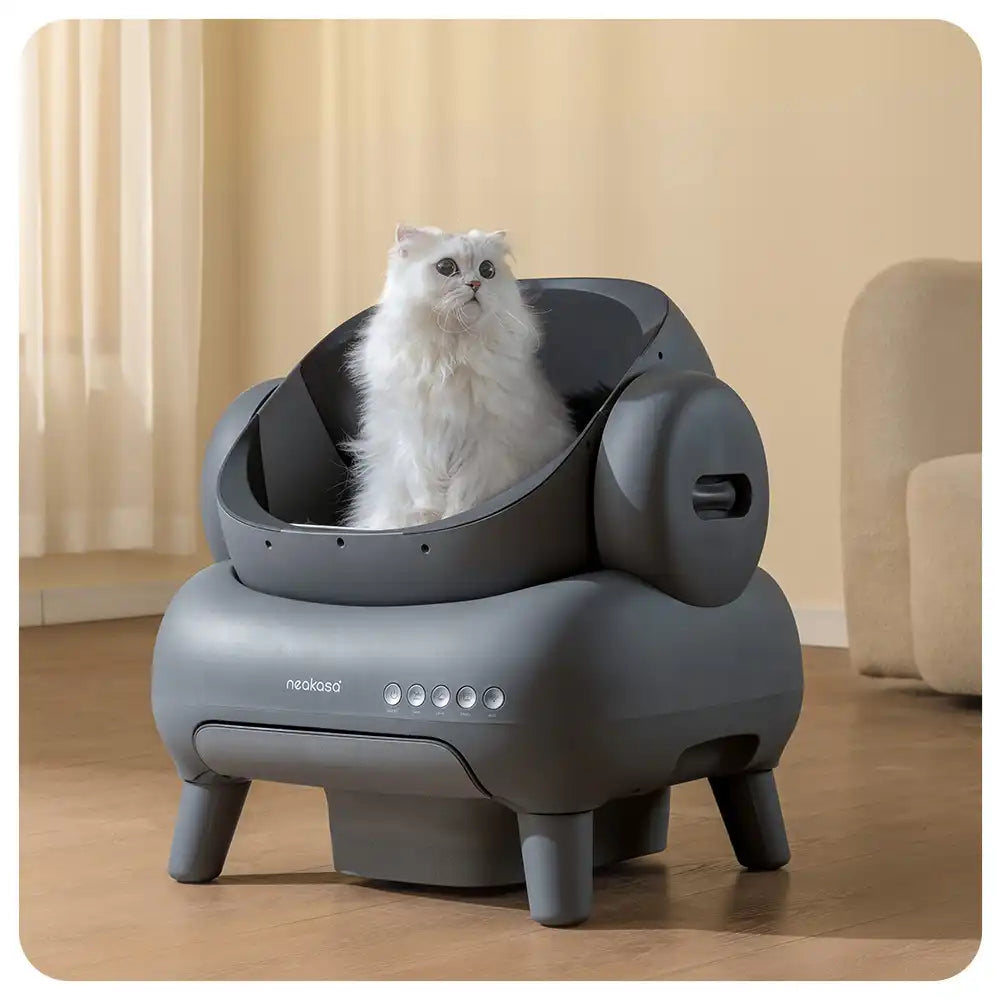Introduction
If you're a cat owner, you know that cleaning the litter box is one of the most dreaded tasks of pet ownership. Between scooping out clumps, battling odors, and finding the time in your busy schedule, the litter box can quickly become a household headache. Enter the automatic litter box—a game-changing innovation that promises to make life easier for both you and your feline friend. But does it really deliver?
In this comprehensive guide, we'll explore why an automatic litter box could be the best investment for your home, how it works, and what to look for when choosing the right one.
What Is an Automatic Litter Box?
An automatic litter box is a self-cleaning cat litter box that uses sensors, rakes, or rotating mechanisms to separate waste from clean litter. Unlike traditional litter boxes that require daily scooping, these innovative solutions offer a hands-free way to keep your cat's bathroom fresh and hygienic.
Key Features of Automatic Litter Boxes
Motion sensors to detect when your cat has used the box
Automated raking or sifting mechanisms
Odor control systems
Waste receptacles for easy disposal
Compatibility with clumping litter
By eliminating the daily chore of scooping, automatic litter boxes save time and reduce unpleasant odors—an appealing combination for busy cat parents.
Benefits of Switching to an Automatic Litter Box
1. Convenience and Time Savings
One of the main reasons cat owners turn to automatic litter boxes is convenience. Traditional litter boxes require frequent scooping and cleaning, which can feel like a never-ending task. With an automatic litter box, you only need to empty the waste compartment once every few days (or even weekly, depending on the model).
2. Odor Control
Automatic litter boxes often include built-in odor control features such as carbon filters or sealed waste receptacles. These additions help keep your home smelling fresh, even with multiple cats.
3. Better Hygiene for Cats and Humans
Frequent cleaning is crucial for your cat’s health. Dirty litter boxes can harbor bacteria and contribute to urinary tract infections or other health issues. Automatic litter boxes promote a cleaner environment for your cat—and for you, too.
4. Reduced Litter Tracking
Many modern automatic litter boxes are designed to reduce tracking by using entry mats or step systems. This keeps your floors cleaner and minimizes the amount of litter scattered around your home.
How Do Automatic Litter Boxes Work?
Understanding how these devices work can help you choose the right one.
Basic Mechanisms
-
Raking Systems: A rake moves across the litter to separate waste from clean litter, depositing it into a sealed waste compartment.
-
Rotating Systems: The entire litter chamber rotates, sifting clean litter while directing waste into a container.
-
Sifting Mechanisms: Some models use vibrating or sifting technology to separate waste automatically.
Sensor Technology
Automatic litter boxes typically use motion sensors to detect when your cat has used the box. Once your cat leaves, the cleaning cycle begins after a short delay to ensure your pet is safely out of the box.
Are Automatic Litter Boxes Safe for Cats?
Absolutely—automatic litter boxes are designed with safety in mind. Most models include sensors that stop the cleaning cycle if a cat re-enters the box. However, it’s a good idea to supervise your cat during the initial days of use to ensure they’re comfortable with the new device.
Things to Consider Before Buying
Before investing in an automatic litter box, consider the following factors:
1. Size and Weight Capacity
Ensure the litter box is big enough for your cat. Larger cats may require models with more spacious entryways and internal compartments.
2. Noise Level
Some automatic litter boxes can be noisy during the cleaning cycle. If your cat is skittish, look for models with quieter operation.
3. Litter Type Compatibility
Many automatic litter boxes are designed for clumping litter, but some may work with crystals or alternative litters. Check the manufacturer’s guidelines.
4. Ease of Cleaning
Even automatic litter boxes need periodic cleaning. Choose a model with easy-to-remove parts and clear maintenance instructions.
Practical Tips for Transitioning Your Cat
Cats are creatures of habit, so transitioning to an automatic litter box can take time. Here are some tips:
-
Gradual introduction: Set up the new box next to the old one, giving your cat the option to explore at their own pace.
-
Leave the old box in place for a few days to ensure your cat feels secure.
-
Reward and encourage: Use treats or playtime to positively reinforce the new litter box.
Common Concerns and Misconceptions
“Will my cat be scared of the noise?”
Some cats may be wary at first, but most adjust quickly. Starting with a quiet cleaning cycle can help ease their concerns.
“Will I still need to clean it?”
Yes—while you won’t have to scoop daily, you’ll still need to empty the waste container and occasionally deep-clean the unit.
“Is it worth the price?”
Although automatic litter boxes can be expensive, they save significant time and hassle in the long run, making them a worthwhile investment for many pet owners.
Maintenance and Long-Term Use
To ensure your automatic litter box stays in top shape:
-
Follow the manufacturer’s cleaning schedule.
-
Use the recommended litter type for best results.
-
Replace filters and waste receptacles as needed to maintain odor control.
Internal Linking for Deeper Learning
If you’re curious about how to choose the best litter box for your cat’s unique needs, check out our in-depth blog post: How to Choose the Right Litter Box for Your Cat.
Conclusion: A Smarter Way to Care for Your Cat
An automatic litter box isn’t just a luxury—it’s a smart investment in your cat’s health and your own convenience. By eliminating the daily scooping chore and improving overall cleanliness, you can spend more quality time enjoying your cat’s company instead of managing messes.
Have you made the switch to an automatic litter box? Share your experience in the comments below!

